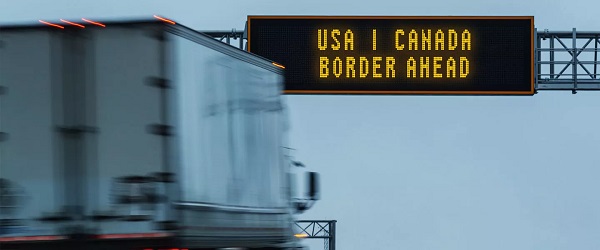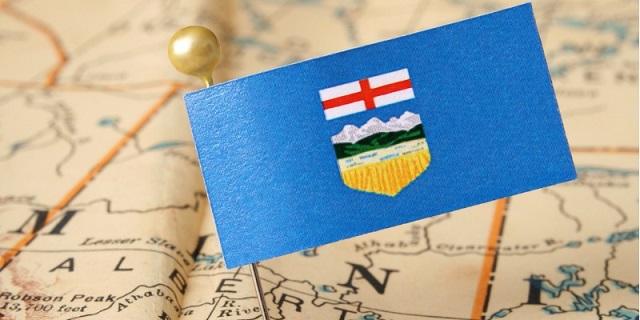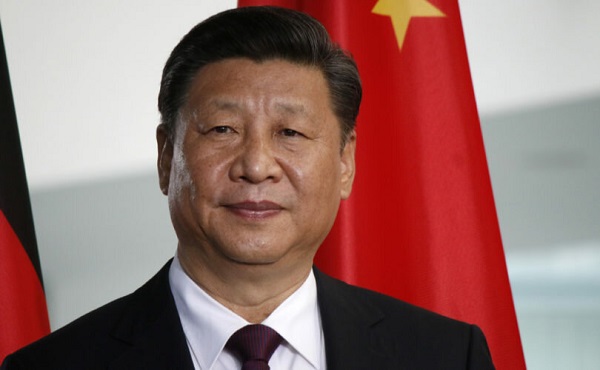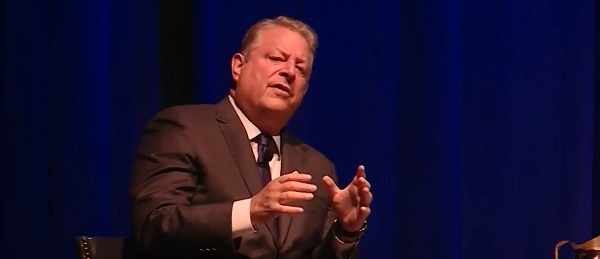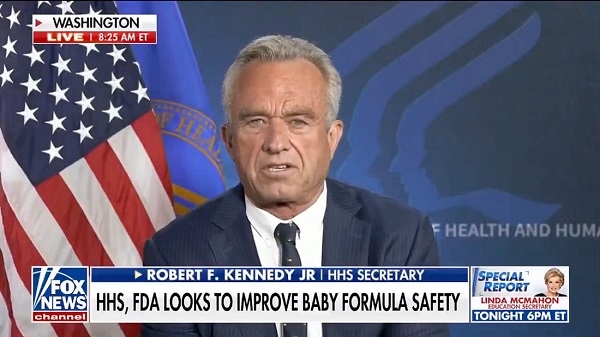Bruce Dowbiggin
Can Rory and Tiger Save The PGA Tour From Greg Norman?
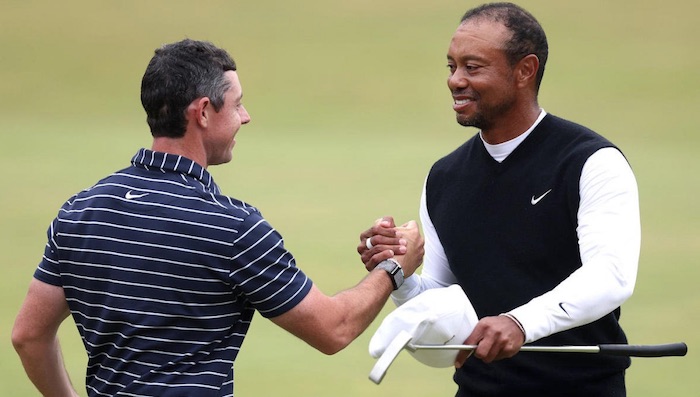
Sign up today for Not The Public Broadcaster newsletters. Hot takes/ cool slants on sports and current affairs. Have the latest columns delivered to your mail box. Tell your friends to join, too. Always provocative, always independent.
The PGA Tour season wound up with a bang for Rory McIlroy, who won US$18 million for capturing the Fed Ex Cup— and maybe Player of the Year, too. Otherwise it was, as the British say, a damp squib for the preeminent golf body in the world.
Even as the final putt dropped on the 18th hole, word had dropped of more frontline stars defecting to the upstart LIV Golf Tour. Open Championship/ Players Championship winner Cam Smith, Marc Leishman, Cameron Tringale, Anirban Lahiri, Joaquin Niemann, Harold Varner III and possibly Mito Pereira are headed to the lucrative rival circuit. And banishment from all things PGA Tour.
In one fell swoop that could rob the World Team for the upcoming Presidents Cup of at least four stars when they tee it up at Quail Hollow on Sept. 19. Added to the other international players (Louis Oosthuizen, Charl Schwartzel) who’ve already jumped to the Saudi-backed LIV it turns the showpiece event into a walkover.
Worse for the PGA Tour, it was forced by its remaining major stars into making accommodations that sound suspiciously like those that were being demanded by LIV CEO Greg Norman as far back as the 1980s. Namely, more emphasis on the Tour stars playing together more often, innovative formats, global outreach and tons of new money.
As we foresaw on Feb. 3, 2020, “It’s not a new idea in golf. Investors using former world number one Greg Norman as their front man tried the same tactic as far back as the 1980s. But the combination of Norman’s reputation with fellow pros and the lack of a digital media marketplace stalled the idea. This time, with integrated media and innovation in travel, it could succeed.
Rory McIlroy confirmed that he’s talked to the people behind the idea to create a league of extraordinary golfing gentlemen. “You know, it’s a hard one. … I love the PGA Tour, but these guys have exploited a couple of holes in the system, the way golf at the highest level is nowadays and how it’s sort of transitioned from a competition tour to entertainment. Right? It’s on TV, it’s people coming out to watch. It’s definitely a different time than what it was before.”
McIlroy resisted the LIV seduction and is now one of the hardliners left on the PGA Tour. He partnered with Tiger Woods and a handful of other elite players in pressuring the PGA Tour to make big changes if it wants to survive as the preeminent Tour. The plan— it goes into effect in January 2023— means bribing the superstars into playing more than just the four majors and a handful of other prestige events.
As Sports Illustrated explains, the new template will create “Two tiers of tournaments, one of “elevated events” featuring the best players in the world and larger purses, and one for everybody else on Tour. It’s not quite that simple, and of course players can move up and down based on how they play each year. But that is the gist of it.
The Tour also doubled its Player Impact Program payout from $50 million to $100 million. This will all be better for the best players, and the Tour had to keep the best players. But whether it is better for the sport is to be determined.”
The PIP slush fund will be based on internet searches, general awareness, golf fan awareness, media mentions and broadcast exposure. And, ending a long meritocratic tradition of no guaranteed money on the Tour, fully exempt members — Korn Ferry Tour and above — will be guaranteed a league minimum of $500,000. There will also be $5,000 to players who miss the cut.
So, after the new 20 “prestige” events— not including the RBC Canadian Open— that will leave 15 openings for other tournaments on the schedule. If The Canadian Open wishes to make it up with the big boys their sponsor RBC will likely have to pony up US $20 M in prize money. Even that won’t guarantee the Canadian Open a good midsummer date or a respectable field. (The Canadian government has indicated it will bump up its contribution to the Open and the LPGA CP Championship.)
Now squeezed between two “elite” events players will flock to, the Open will only dream of the quality field it had in 2022 with McIlroy winning the title as St. George’s in Toronto.

Anyone counting on the Saudis getting bored with golf and dumping LIV is likely going to wait a while. To ratchet pressure on those who choose the Bobby Hull route of changing leagues, PGA Tour commissioner Jay Monahan declared a permanent ban from all its events for defectors like Smith Phil Mickelson, Dustin Johnson and Bryson DeChambeau. The Tour will also pressure the organizers of the four majors to honour those bans. For the foreseeable future— or unless a court allows for players to mix-and-match Tours— it’s cold war. Think NHL versus WHA.
As a footnote, it would be remiss to ignore the impact of Tiger Woods in all this. The aging, injured supernova was integral in getting the Tour to adapt. He knows he still moves the needle on TV, and thus will get PIP money even if he only plays a few tournaments a year.
He and McIlroy also got the Tour to accept their new prime-time venture that will feature 18-hole events played on a virtual course across a two-hour window. The 15 regular-season matches will be contested by six three-man teams of PGA Tour golfers. Woods and McIlroy are already on board with 16 more spots to fill before the inaugural season kicks off in January 2024.
The time for talk is over. The sides are dug in. What happens next is a coin flip. But if money wins the day, place your bests ion the Saudis getting some—or all— of what they and Greg Norman want.
Bruce Dowbiggin @dowbboy is the editor of Not The Public Broadcaster (http://www.notthepublicbroadcaster.com). A two-time winner of the Gemini Award as Canada’s top television sports broadcaster, he’s a regular contributor to Sirius XM Canada Talks Ch. 167. Inexact Science: The Six Most Compelling Draft YearsIn NHL History, , his new book with his son Evan, was voted the eighth best professional hockey book of by bookauthority.org . His 2004 book Money Players was voted seventh best, and is available via http://brucedowbigginbooks.ca/book-personalaccount.aspx
2025 Federal Election
Chinese Gangs Dominate Canada: Why Will Voters Give Liberals Another Term?

There’s an old joke that goes, the Japanese want to buy Vancouver but the Chinese aren’t selling. Glib, yes. But with enough truth— Chinese own an estimated 30 percent of Vancouver’s real estate market— to pack a punch; Especially in this truncated rush to anoint Mark Carney PM before anyone finds out exactly who’s his Mama.
The advertised narrative for this election is Donald Trump’s vote of no confidence in the modern Canadian state. A segment of Canadians— mostly Boomers— see this as intolerable foreign interference in the country’s sovereignty. So rather than look inward at why Canada’s closest partner is fed up with them the Liberal government has chosen a pep rally rathe than any uncomfortable questions.
Namely about Chinese interference in Canada’s politics, the distortion of real-estate prices in Canadian urban markets, the exploitation of banking and the thriving drug trade that underpins it all. And how it’s driving a wedge between generations in the nation. As we like to say, Canada’s contented elites have been sitting in first class for decades but only paying economy.
They’d like you to forget insinuations that Canada is a global money-laundering capital. Better to blame Trump for the “willful blindness” that has Americans and others losing trust in Canada to keep secrets and contribute its fair share tom protecting against the growth of China. (The same geopolitical concern that saw Trump kick the Chinese out of the Panama Canal Zone.)
Thanks to the diligent reporting of journalist Sam Cooper and others we know better. And it’s ugly. An estimated trillion dollars from Chinese organized crime has washed through Canada since the 1990s. They’ve used underground banks and illegal currency smuggling to circumvent the law. They’ve bribed and intimidated. And they’ve poisoned elections.
This penetration of the culture/ economy by well-organized Asian criminal gangs have been around since the 1990s, but under Trudeau they hit warp speed. By the time Trump inconveniently raised the issue of border security in January, Canada’s economy could fairly be characterized as a real-estate bubble with a drug-money-laundering chaser. The Chinese Communist Party now operates “police stations” in many Canadian cities to supervise this activity and report to Beijing.

In his 2021 book Willful Blindness (and subsequent reporting) Cooper patiently records this evolution with brazen Asian gangs using casinos in BC and Ontario as money-laundering outlets to wash drug money and other criminal proceeds, turning stacks of dirty twenty-dollar bills into clean hundred-dollar bills or casino chips. (When Covid closed the casinos they used luxury mansions as private casinos.)
All financed by underground banks and loansharks. This process became known internationally as The “Vancouver Model” to help establish Chinese proxies overseas and extend the CPP ‘s reach. Hey, the real estate kingpin is named Kash-Ing. (Kaching!) It’s currently being used to buy farm properties in PEI, much to the anger of residents (who will still vote Liberal to protect their perks.)
While investigators and some authorities attempted to expose the schemes the perps were protected by compromised government officials, corrupt casino employees and the inability of courts to deliver justice. It’s why Canadians were so shocked that TD Bank was fined $3B in the U.S. for allowing money laundering. “Not us! No way! We’re Simon pure”.
Much of this money ended up in Canada’s feverish real-estate market, with vacant properties creating insane price spirals across the nation. It’s driven the inability of under 40s to buy homes— another major crisis the Liberals are trying to disguise under Mark Carney the compliant banker. Still more of the proceeds were used to build stronger drug-supply chains between Asia, Mexico and Canada— with heroin and fentanyl then distributed to the U.S. and in Canada.

Against this explosion of housing and drug debt were stories of the political influence of these gangs into the Canadian system. The sitting Canadian prime minister, who praised the Chinese form of governing before he reached the PM post, has been seen in photos with underground Asian gang figures. As were previous Liberal leaders like Jean Chretien who made no secret of his lust for the Chinese market. Chinese money was used to build extensively in Chretien’s Shawinigan riding.
Donations to Trudeau’s Montreal riding association and to the Trudeau Foundation were favourites of shadowy Chinese figures. “In just two days (in 2016), the prime minister’s (Outremont) riding received $70,000 from donors of Chinese origin, and at the same time, the government authorized the establishment of a Chinese bank in Canada,” Bloc leader Yves-Francois Blanchet said on Feb. 28.
Donations to Trudeau from all across Canada constituted up to 80 percent of the riding’s contributions that year. In May 2016, one such fundraiser saw Trudeau hosted by Benson Wong, chair of the Chinese Business Chamber of Commerce, along with 32 other wealthy guests in a pay-for-access event. The patterns exposed by Cooper finally prompted a commission by Quebec justice Marie-Josée Hogue looking into Chines interference in Trudeau’s successful 2019 and 2021 elections.

An interim report released last year by Hogue determined that while foreign interference might not have changed the outcome of Canada’s 2019 and 2021 federal elections, it did undermine the rights of Canadian voters because it “tainted the process” and eroded public trust. So petrified was Trudeau of the full Hogue Report that he prorogued parliament for three months and handed in his resignation rather than test his 22 percent approval rating in a Canadian election. Or his luck with the courts.
Luckily for Liberals Trump came along to smoke out Trudeau and allow for the current whitewash of the party’s record since 2015 under Carney. So instead of agreeing with Washington about Canada’s corrupted economy Canadians have decided to engage in a Mike Myers nostalgia fest for a nation long gone. A nation overly dominated by its smug, satisfied +60 demographic that sits back on its savings while younger Canadians cannot get into the economy.
Reaching past the sunset media to those people is Pierre Poilievre’s task. He has a month to do so. For Canada’s long-term prospects he’d better succeed. The Chinese are watching closely.
Bruce Dowbiggin @dowbboy is the editor of Not The Public Broadcaster A two-time winner of the Gemini Award as Canada’s top television sports broadcaster, his new book Deal With It: The Trades That Stunned The NHL And Changed hockey is now available on Amazon. Inexact Science: The Six Most Compelling Draft Years In NHL History, his previous book with his son Evan, was voted the seventh-best professional hockey book of all time by bookauthority.org . His 2004 book Money Players was voted sixth best on the same list, and is available via brucedowbigginbooks.ca.
Bruce Dowbiggin
From Heel To Hero: George Foreman’s Uniquely American Story
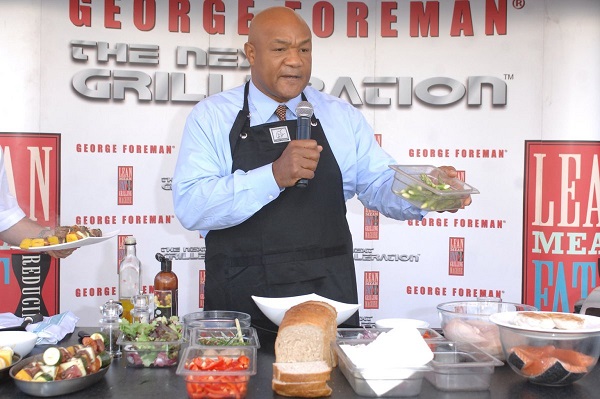
“The more you learn, the more you realize how much you don’t know.”— George Foreman
For those who thought Donald Trump’s role progression (in WWE terms) from face to heel to face again was remarkable, George Foreman had already written the media book on going from the Baddest Man in the World to Gentle Giant.
It’s hard for those who saw him as the genial Grill Master or the smiling man with seven sons all named George (he also had seven daughters, each named differently) to conjure up the Foreman of the 1970s. He emerged as a star at the 1968 Olympics, winning the gold medal in heavyweight boxing. His destruction of a veteran Soviet fighter made him a political hero. In an age that already boasted a remarkable heavyweights Foreman was something unique.
Muhammad Ali, Joe Frazier, Ken Norton, Ron Lyle and Jimmy Ellis were still bankable household names for boxing fans— but on the downside of famous careers. They each had their niche. Foreman was something altogether different. Violent and pitiless in the ring. Unsmiling as he dismantled the boxers he met on his way to the top. He was the ultimate black hat.
With the inimitable Howard Cosell as his background track , he entered the ring in 1973 against the favoured ex-champ Frazier, coming off his three epic fights with Ali. While everyone gave Foreman a chance it was thought that the indomitable Frazier, possessor of a lethal left hook, would tame the young bull.

Instead, in under two rounds of savagery , Foreman sent Frazier to the canvas six times. Cosell yelled himself horse crying, “Down goes Frazier! Down goes Frazier!” This was a whole new level of brutality as the poker-faced Foreman returned to his corner as the most feared boxer on the planet. For good measure Foreman destroyed Norton in 1974.
Fans of Ali quaked when they heard that he would face Foreman’s awesome power in Africa in the summer of 1974. They knew how much the trio of Frazier brawls had taken from him. The prospect of seeing the beloved heavyweight champ lifted off his feet by Foreman’s power left them sick to their stomach. Foreman played up his bad-boy image, wearing black leather, snarling at the press and leading a German shepherd on a leash.
Everyone knows what happened next. We were travelling the time in the era before internet/ cell phones. Anticipating the worst we blinked hard at the headline showing the next day that it was a thoroughly exhausted Foreman who crumbled in the seventh round. The brilliant documentary When We Were Kings is the historical record of that night/ morning in Kinshasa. The cultural clash of Ali, the world’s most famous man, and the brute against the background of music and third-world politics made it an Oscar winner.
But it’s largely about Ali. It doesn’t do justice to the enormity of Foreman’s collapse. Of course the humiliation of that night sent Foreman on a spiritual quest to find himself, a quest that took the prime of his career from him. It wasn’t till 1987 that he re-emerged as a Baptist minister/ boxer. With peace in his soul he climbed the ranks again, defiantly trading blows in the centre of the ring with opponents who finally succumbed to his “old-man” power.
Instead of the dour character who was felled by Ali, this Foreman was transformed in the public’s eye when he captured the heavyweight title in 1994, beating Michael Moore, a man 20 years his junior. He smiled. He teased Cosell and other media types. He fought till he was 48, although he tried to comeback when he was 55 (his wife intervened)

And, yes, for anyone who stayed up late watching TV there was the George Foreman Grill, a pitchman’s delight that earned him more money than his boxing career. HBO boxing commentator Larry Merchant commented that “There was a transformation from a young, hard character who felt a heavyweight champion should carry himself with menace to a very affectionate personality.”
There was a short-lived TV show called George. There was The Masked Singer as “Venus Fly Trap”. And there were the cameos on Home Improvement, King Of The Hill and Fast ’N Loud, delighting audiences who’d once reviled him. He cracked up Johnny Carson.
Foreman’s rebound story was uniquely American. Where Canadians are enthusiastically damning Bobby Orr and Wayne Gretzky for political reasons, Foreman never became a captive of angry radicals or corporate America. He went his own way, thumping the bible and the grill. Rest easy, big man.
Bruce Dowbiggin @dowbboy is the editor of Not The Public Broadcaster A two-time winner of the Gemini Award as Canada’s top television sports broadcaster, his new book Deal With It: The Trades That Stunned The NHL And Changed hockey is now available on Amazon. Inexact Science: The Six Most Compelling Draft Years In NHL History, his previous book with his son Evan, was voted the seventh-best professional hockey book of all time by bookauthority.org . His 2004 book Money Players was voted sixth best on the same list, and is available via brucedowbigginbooks.ca.
-

 2025 Federal Election1 day ago
2025 Federal Election1 day agoPoilievre refuses to bash Trump via trick question, says it’s possible to work with him and be ‘firm’
-
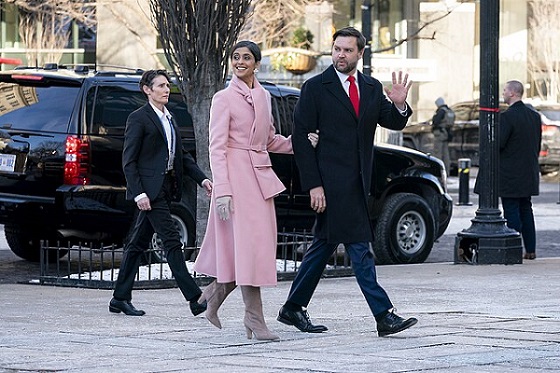
 International2 days ago
International2 days agoVice President Vance, Second Lady to visit Greenland on Friday
-

 2025 Federal Election16 hours ago
2025 Federal Election16 hours agoFool Me Once: The Cost of Carney–Trudeau Tax Games
-

 2025 Federal Election2 days ago
2025 Federal Election2 days agoVoters should remember Canada has other problems beyond Trump’s tariffs
-

 Daily Caller2 days ago
Daily Caller2 days agoCover up of a Department of Energy Study Might Be The Biggest Stain On Biden Admin’s Legacy
-

 Community1 day ago
Community1 day agoSupport local healthcare while winning amazing prizes!
-
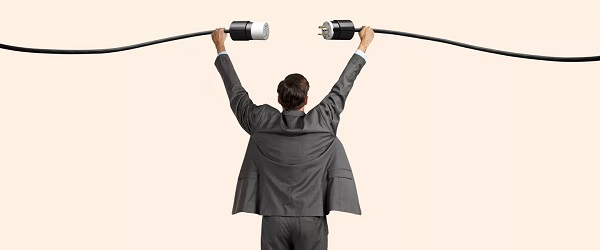
 Energy7 hours ago
Energy7 hours agoPoll: Majority says energy independence more important than fighting climate change
-

 Automotive1 day ago
Automotive1 day agoTrump announces 25% tariff on foreign automobiles as reciprocal tariffs loom



